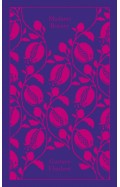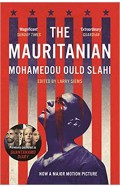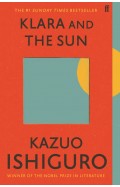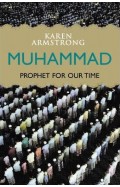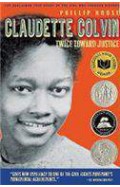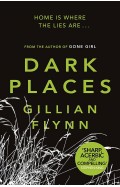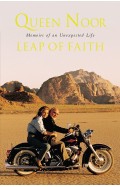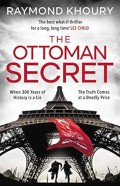Aftershocks - A Memoir
By: Nadia Owusu
-
Rs 2,647.50
- Rs 5,295.00
- 50%
You save Rs 2,647.50.
Due to constant currency fluctuation, prices are subject to change with or without notice.
Combining literary memoir and cultural history, Aftershocks grapples with the multiplicity of identity, the meaning of home, the complexities of family, and the ripple effects, both personal and generational, of emotional trauma. As young Nadia followed her father, a civil servant with the United Nations, around the globe, she bounced between Africa and Europe before moving to the United States to attend college. The fractured geography she called home mirrored the multiple identities she laid claim to through a Ghanaian father descended from Ashanti royalty and an Armenian American mother who abandoned Nadia when she was two. Nadia has, at different points in her life, felt stateless, motherless, and uncertain about who she really is. At other times, she has been overwhelmed by her identities. Is she European, African, American All, or none of the above.At no point does this fractured sense of self make her feel more unmoored than when her father dies. This cataclysmic event is compounded by the bombshell secret her stepmother reveals after his passing, a secret rife with shaming innuendo. What follows are episodes of confusion, sorrow, and depression as the pressure to hold herself and her siblings together gives way to what Nadia describes as fault lines in her own self. Aftershocks is the way she hauled herself out of the wreckage of her life's perpetual quaking, the means by which she finally came to understand that the only ground firm enough to count on was the one she wrote into existence. Heralding a dazzling new writer, Aftershocks joins the likes of Styron's Darkness Visible and Esmé Weijun Wang's The Collected Schizophrenias, and does for race identity what Maggie Nelson does for gender identity in The Argonauts.
Combining literary memoir and cultural history, Aftershocks grapples with the multiplicity of identity, the meaning of home, the complexities of family, and the ripple effects, both personal and generational, of emotional trauma. As young Nadia followed her father, a civil servant with the United Nations, around the globe, she bounced between Africa and Europe before moving to the United States to attend college. The fractured geography she called home mirrored the multiple identities she laid claim to through a Ghanaian father descended from Ashanti royalty and an Armenian American mother who abandoned Nadia when she was two. Nadia has, at different points in her life, felt stateless, motherless, and uncertain about who she really is. At other times, she has been overwhelmed by her identities. Is she European, African, American All, or none of the above.At no point does this fractured sense of self make her feel more unmoored than when her father dies. This cataclysmic event is compounded by the bombshell secret her stepmother reveals after his passing, a secret rife with shaming innuendo. What follows are episodes of confusion, sorrow, and depression as the pressure to hold herself and her siblings together gives way to what Nadia describes as fault lines in her own self. Aftershocks is the way she hauled herself out of the wreckage of her life's perpetual quaking, the means by which she finally came to understand that the only ground firm enough to count on was the one she wrote into existence. Heralding a dazzling new writer, Aftershocks joins the likes of Styron's Darkness Visible and Esmé Weijun Wang's The Collected Schizophrenias, and does for race identity what Maggie Nelson does for gender identity in The Argonauts.
AFTERSHOCKS - Dispatches from the Frontlines of Identity
By: Nadia Owusu
Rs 2,970.75 Rs 3,495.00 Ex Tax :Rs 2,970.75
Zubin Mehta: A Musical Journey (An Authorized Biography)
By: VOID - Bakhtiar K. Dadabhoy
Rs 892.50 Rs 1,050.00 Ex Tax :Rs 892.50
Madame Bovary: Provincial Lives (Penguin Clothbound Classics)
By: Gustave Flaubert
Rs 3,595.50 Rs 3,995.00 Ex Tax :Rs 3,595.50
Klara and the Sun: The Times and Sunday Times Book of the Year
By: Kazuo Ishiguro
Rs 2,065.50 Rs 2,295.00 Ex Tax :Rs 2,065.50
Elon Musk: How the Billionaire CEO of SpaceX and Tesla is Shaping our Future
By: Ashlee Vance
Rs 2,245.50 Rs 2,495.00 Ex Tax :Rs 2,245.50
Whiskey Tango Foxtrot : Strange Days in Afghanistan and Pakistan
By: Kim Barker
Rs 1,097.50 Rs 2,195.00 Ex Tax :Rs 1,097.50
Madame Bovary: Provincial Lives (Penguin Clothbound Classics)
By: Gustave Flaubert
Rs 3,595.50 Rs 3,995.00 Ex Tax :Rs 3,595.50
Klara and the Sun: The Times and Sunday Times Book of the Year
By: Kazuo Ishiguro
Rs 2,065.50 Rs 2,295.00 Ex Tax :Rs 2,065.50
Zubin Mehta: A Musical Journey (An Authorized Biography)
By: VOID - Bakhtiar K. Dadabhoy
Rs 892.50 Rs 1,050.00 Ex Tax :Rs 892.50
AFTERSHOCKS - Dispatches from the Frontlines of Identity
By: Nadia Owusu
Rs 2,970.75 Rs 3,495.00 Ex Tax :Rs 2,970.75
Madame Bovary: Provincial Lives (Penguin Clothbound Classics)
By: Gustave Flaubert
Rs 3,595.50 Rs 3,995.00 Ex Tax :Rs 3,595.50
Klara and the Sun: The Times and Sunday Times Book of the Year
By: Kazuo Ishiguro
Rs 2,065.50 Rs 2,295.00 Ex Tax :Rs 2,065.50












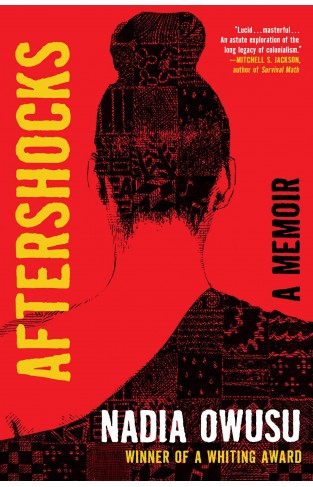
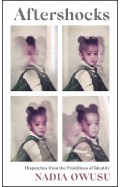
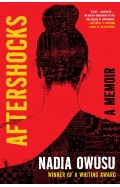
-120x187.jpg?q6)





